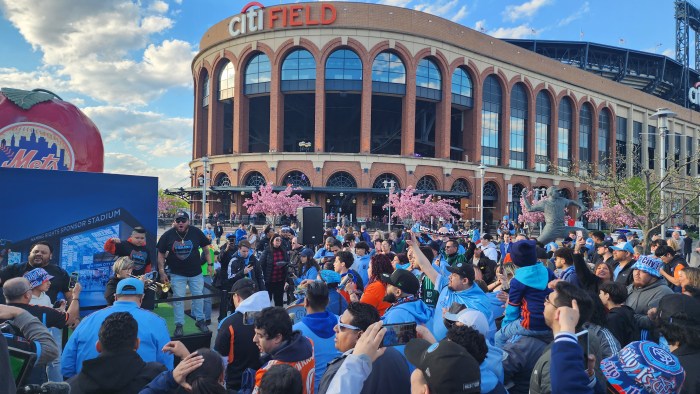By Nathan Duke
Parks discovered the dreaded bug in 12 trees between 58th Avenue and 61st Avenue along Fresh Pond Road in Maspeth and is in the process of inspecting the neighborhood for potentially more infected trees, said Dorothy Lewandowski, the department's Queens borough commissioner.The trees are currently tagged and will eventually need to be cut down, she said.The beetle, which is native to China, Korea and Japan, had destroyed a dozen trees near Fresh Pond Road and Flushing Avenue in July, requiring that they be chopped down. Beetle infestation also ruined more than 65 trees near the neighborhood's Mt. Olivet Cemetery in 2003. More than 4,000 trees have been removed citywide in the past decade to prevent the spread of the insect.”The Asian Longhorned beetle is a devastating pest threatening our nation's trees,” Lewandowski said. “The public is our eyes and ears and we know that early detection of the beetle greatly increases the potential for successful eradication.”The beetle primarily targets hardwood trees, including all species of maple, birch, horse chestnut, poplar, willow, elm, ash, mimosa, hackberry, London plane, mountain ash and sycamore, Lewandowski said. Infested trees often have round pits in the tree bark, an accumulation of sawdust, round exit holes and oozing sap, she said. The beetles, which are typically 1-inch long, infest the trees by depositing eggs under the bark of healthy trees. The larvae bore into the tree and feed on its tissue and, upon becoming adults, emerge from exit holes in the tree and feed on its smaller twigs and leaves.Kathy Durand, a spokeswoman for the state Department of Agriculture, said trees infested with the beetles cannot be treated but must be cut down and burned.”There isn't an effective means of preventing, so we try to eradicate them,” she said. “They can be devastating in an urban community where trees are in short supply to begin with.”Residents said the bugs are a serious concern in the neighborhood.”We want to have a lot of trees in the neighborhood not only for aesthetics, but also because it's the only source of fresh air,” said Maspeth resident Tony Nunziato. “The area is already overdeveloped, so I hope Parks will come back and replace the trees.”The beetles have infected trees in Queens, Brooklyn and Manhattan following their discovery in Greenpoint in 1996. Reach reporter Nathan Duke by e-mail at news@timesledger.com or by phone at 718-229-0300, Ext. 156.
































